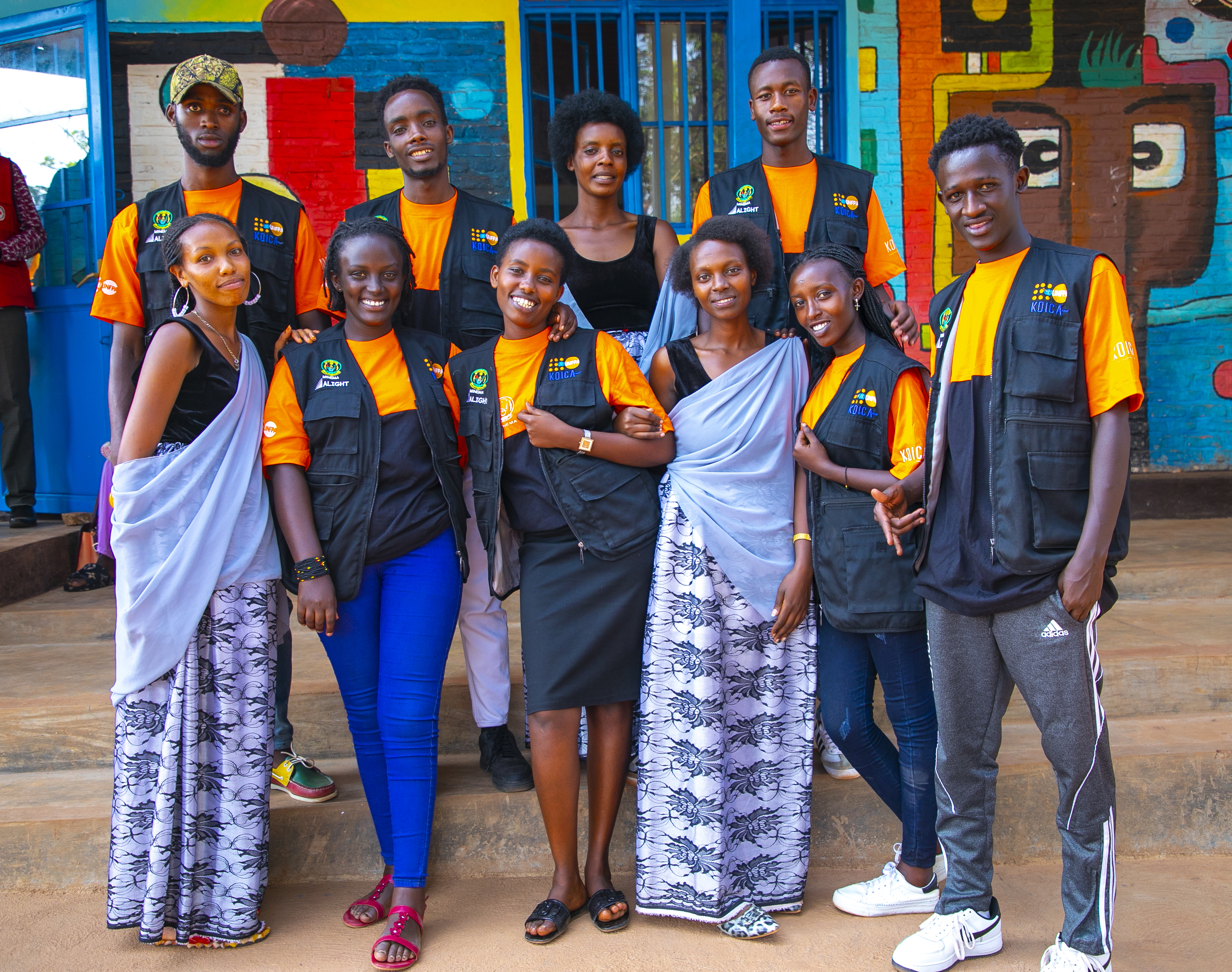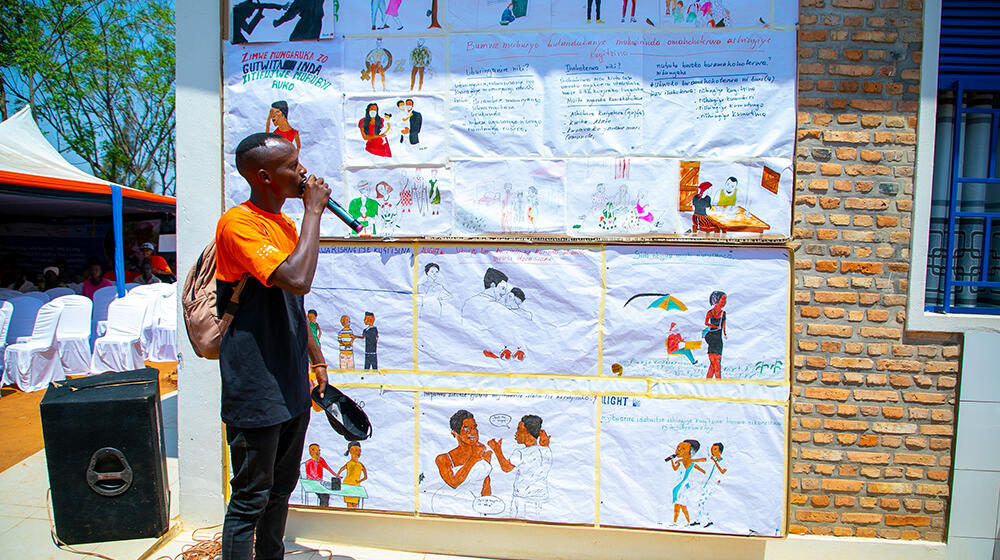Olivier Arakaza, 18, a Burundian refugee in Rwanda, is one of the successful youth peer educators in the Mahama refugee camp, located in Kirehe District, Eastern Province of Rwanda. Arakaza is an enthusiastic young man, very famous in the camp for his energetic character and innovative strategies while engaging young people, in the camp and the neighbouring community, about Sexual and Reproductive Health and Rights.
“I’m grateful for being a mentor to my fellow young people in the camp, especially for the time we spend together discussing Sexual and Reproductive Health and Rights”
Prior to being a mentor, Arakaza went through hard times in life that led him to drug addiction. When he arrived at Mahama camp, he was young, unemployed, and not attending school. He could not provide any support to his family. With bad influence from his fellow young boys in the camp in its surroundings, he started engaging in drugs.
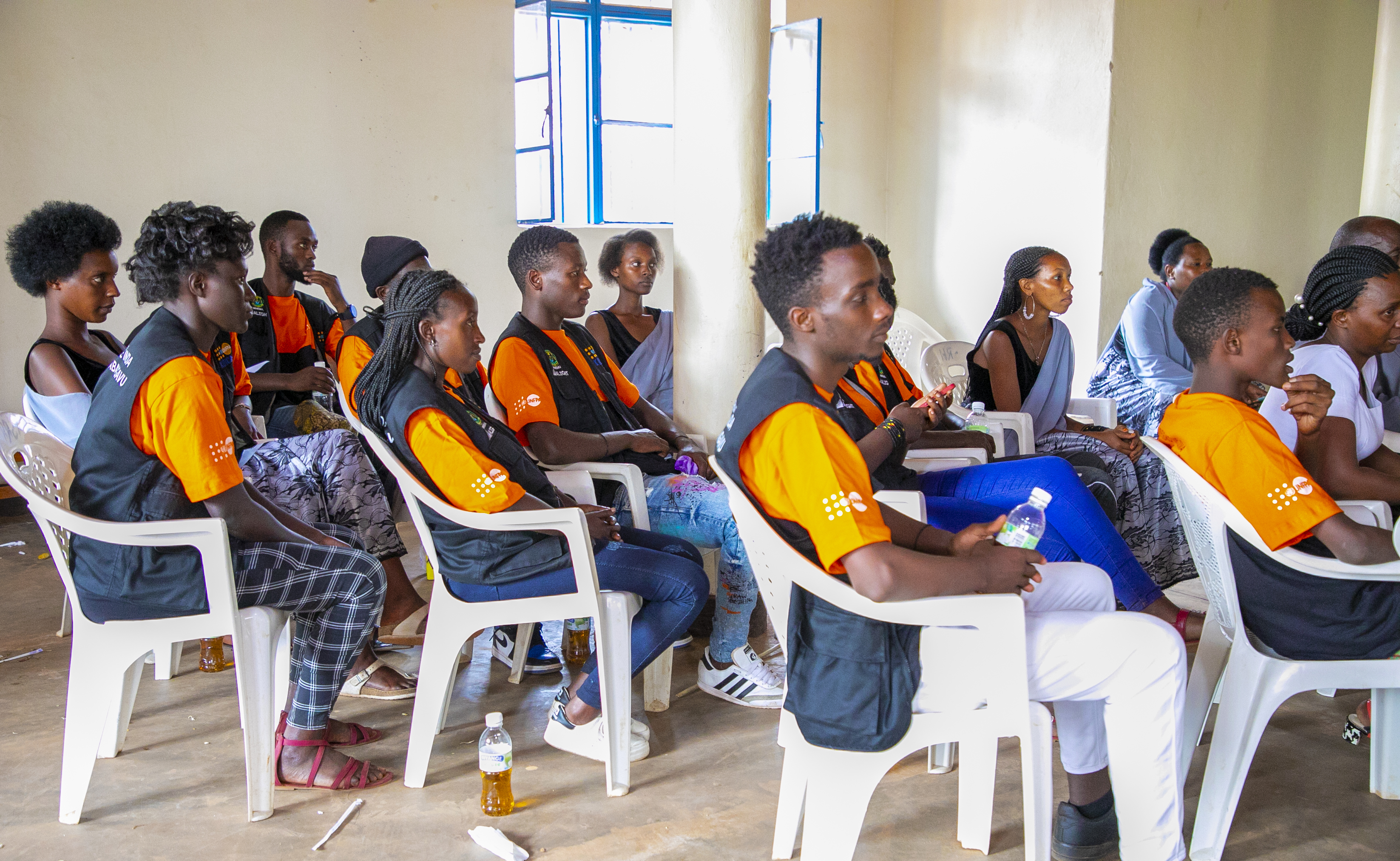
Arakaza and his colleagues attended training sessions organized by Alight in partnership with UNFPA, which aim to equip young people in refugee camps with knowledge and skills that allow them to make informed decisions in life. From those sessions, they became peer educators
Arakaza attended training sessions organized by Alight in partnership with UNFPA, which aim to equip young people in refugee camps with knowledge and skills that allow them to make informed decisions in life. Thereafter he decided to quit drugs, and he immediately started advocating for Adolescent Sexual and Reproductive Health and Rights and became a peer educator to his fellow young people in the camp.
“I am a changed person, and I give back to the community by educating teenagers about their reproductive health. So far nine of my friends with whom I used to share drugs, have turned back from their negative behaviour and joined me to educate our peers,'' said Arakaza.
Arakaza, a passionate painter, uses pictures and drawings to deliver informative stories that educate youth in the camp about their reproductive health. He hangs them inside the youth corners where the youth meet for different activities.
Through his drawings, he demonstrates a person's journey from childhood through adolescence to adulthood, focusing on Sexual and Reproductive Health.
The use of these drawings helps young people to understand better and feel free to talk about their reproductive health and discuss the challenges that they face.
Arakaza’s drawings also help those who cannot read to visualize and understand the message without any help.
“When I started using these drawings, young people were interested because they could relate to them. Since then the number of participants in our sessions has increased.” Said Arakaza.
“In order to attract more young people, we added to our meetings some music and short videos that we listen to and watch at the beginning of each session. Young people like it, and are always looking forward to attending.” He added.
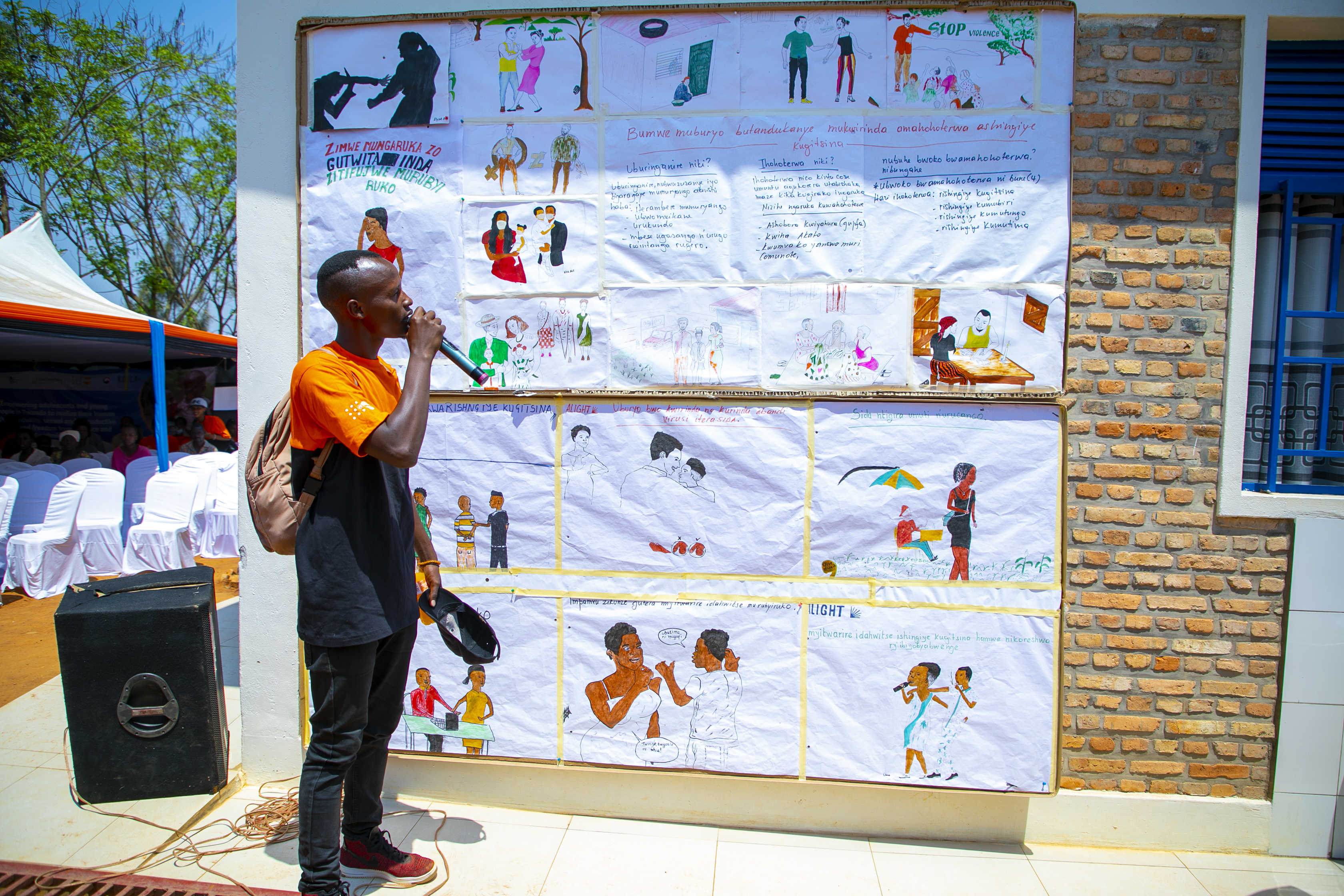
Arakaza uses drawings to deliver informative stories that educate youth in the camp about their reproductive health. It helps to discuss with families in the Mahama refugee camp about different forms of GBV.
This methodology has also helped Arakaza and other peer educators to discuss with families in the Mahama refugee camp about different forms of gender-based violence (GBV), and how to prevent them or report a GBV case.
“Peer educators help us a lot in mobilizing youth and educating them about their sexual life. They also encourage parents to do the same in their homes and our villages, in addition, we have introduced the same discussions in our Christian community.” Jackeline Murorunkwere, Religious Leader at Mahama refugee testifies.
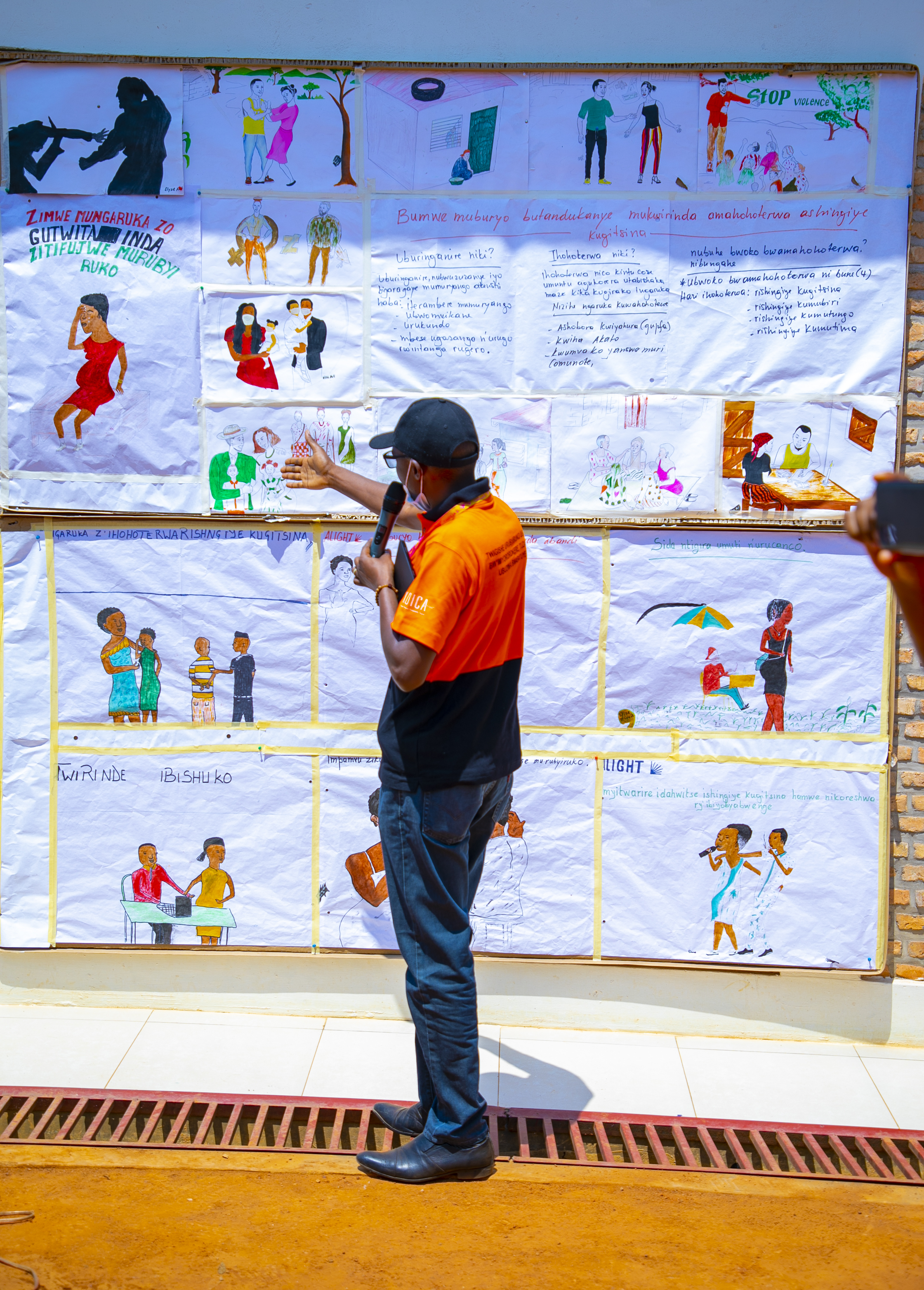
Arakaza, a passionate painter, uses pictures and drawings to deliver informative stories that educate youth in the camp about their reproductive health.
Investments in reproductive health protect the well-being of young people, maximize their potential for healthy and productive lives, and improve social and economic development.
Thanks to the Republic of Korea’s support through the Korea International Cooperation Agency (KOICA), UNFPA advocacy is championing the rights and choices of young people in Rwanda by targeting the most vulnerable youth, especially teenage mothers, persons with disabilities, young refugees, and those in the lowest wealth quintile, through supporting the Sexual Reproductive Health awareness creation, youth-friendly services delivery and capacity building for adolescent responsive health programming.
